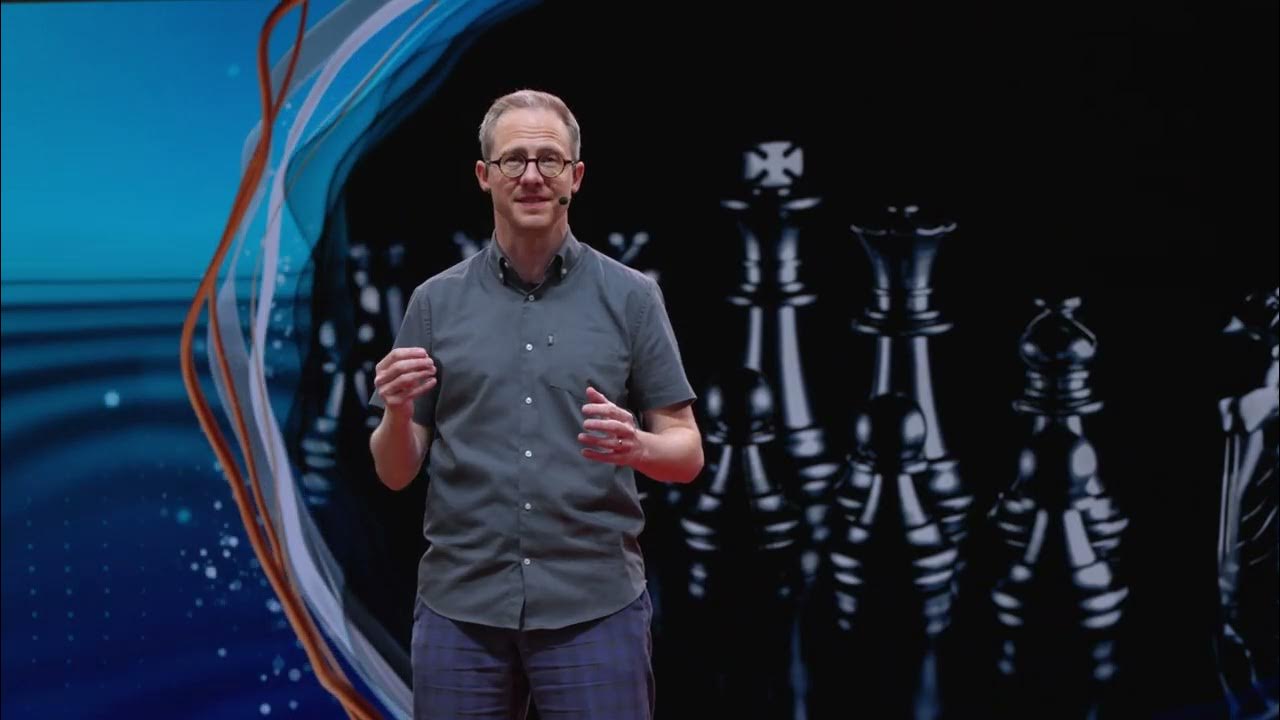Science is shattering our intuitions about consciousness | Annaka Harris
Summary
TLDRIn this thought-provoking script, Annaka Harris explores the fundamental mystery of consciousness, challenging traditional views. She questions whether consciousness arises from complex brain processes or if it is a pervasive phenomenon, like gravity, existing throughout nature. Drawing on examples like locked-in syndrome and the work of neuroscientists, Harris examines how consciousness may not always correlate with behavior or direct perception. She raises profound questions about shared experiences, suffering across systems, and ethics, urging us to reconsider our understanding of consciousness and its presence in everything around us.
Takeaways
- 😀 Consciousness is everything we know and experience, but the mystery lies in why certain matter has a felt experience in the universe.
- 😀 Modern neuroscience suggests that our intuitions about consciousness are wrong, and that consciousness may not arise from complex brain processing.
- 😀 Consciousness could be a fundamental phenomenon in nature, more akin to gravity than something that emerges from complex systems like the brain.
- 😀 The concept of consciousness can be illustrated by Thomas Nagel's 'What is it like to be a bat?' which compares different forms of conscious experience, such as sonar versus human vision.
- 😀 Consciousness, as used here, refers to awareness, felt experience, or sentience—not necessarily tied to complex thought or higher-order thinking.
- 😀 Consciousness can exist in simple organisms without thought, as seen in infants who experience basic sensory inputs like pressure or heat.
- 😀 The study of consciousness has been traditionally confined to neuroscience, but assumptions based on complex brain systems have been challenged by modern research.
- 😀 Two key questions about consciousness are: (1) Can we detect conscious experience from outside a system? (2) Does consciousness serve a functional role in behavior?
- 😀 Conscious experience can exist without observable behavior, as shown in the case of Jean-Dominique Bauby, who had locked-in syndrome but still had a full conscious experience.
- 😀 Neuroscientific findings suggest that consciousness doesn't directly drive behavior—our bodies can react to situations (e.g., fear) before we're consciously aware of them.
- 😀 If consciousness is not tied to complex processing in brains, it may be a universal phenomenon that permeates all systems in nature, requiring new scientific questions and methods to study it.
Q & A
What is the central mystery of consciousness discussed in the script?
-The central mystery is why certain matter in the universe, which appears to be non-conscious, is configured in such a way that it suddenly experiences consciousness—having a felt, subjective experience from the inside.
How does Annaka Harris suggest we rethink consciousness?
-Harris suggests that consciousness may not arise from complex brain processing, as traditionally believed, but could be a fundamental phenomenon in nature, pervasive like gravity, and present in many systems beyond just humans or animals.
What example does Harris use to explain the different ways consciousness might manifest?
-She refers to Thomas Nagel's essay 'What is it like to be a bat?', where a bat uses sonar to experience the world, suggesting that its conscious experience could be vastly different from our own perception of the world through vision.
What distinction does Harris make when talking about consciousness in simple organisms?
-Harris emphasizes that consciousness, in her view, refers to awareness and sentience, which can exist without complex thought. Even a simple organism, like a young child or an infant, can have a felt experience without the ability for complex reasoning.
What is the traditional assumption about consciousness that modern neuroscience challenges?
-The traditional assumption is that consciousness arises from complex processing in brains, but modern neuroscience shows that this intuition is misleading, and consciousness may not be tied solely to complex brain systems.
What are the two key questions Harris asks about consciousness?
-1. Is there any evidence from outside an organism that can tell us that it has conscious experiences? 2. Does consciousness serve a function, such as driving behavior or decision-making?
How does the story of Jean-Dominique Bauby challenge our understanding of consciousness?
-Bauby, who had locked-in syndrome, was fully conscious but unable to exhibit behavior or communicate in conventional ways. His experience challenges the assumption that consciousness is always visible through behavior.
What does Harris say about the relationship between consciousness and behavior?
-Harris explains that consciousness does not necessarily drive behavior. For example, in response to danger, the body reacts before the conscious experience of fear arises. This suggests that the experience of consciousness may follow actions rather than precede them.
How does Harris propose we view consciousness in the context of the natural world?
-Harris proposes that consciousness might be a more fundamental part of nature, possibly present in many systems that we do not typically consider conscious, such as plants or even certain non-human organisms.
What ethical implications does Harris raise regarding consciousness in different systems?
-Harris raises the ethical question of suffering, suggesting that if many more systems in nature are conscious, we would need to reconsider which systems experience pain or suffering, affecting how we treat them.
Outlines

This section is available to paid users only. Please upgrade to access this part.
Upgrade NowMindmap

This section is available to paid users only. Please upgrade to access this part.
Upgrade NowKeywords

This section is available to paid users only. Please upgrade to access this part.
Upgrade NowHighlights

This section is available to paid users only. Please upgrade to access this part.
Upgrade NowTranscripts

This section is available to paid users only. Please upgrade to access this part.
Upgrade NowBrowse More Related Video

Is there consciousness beyond the brain? | Philip Goff | TEDxNewEngland

Spoiler Alert: God Did Not Create the Universe

Neuroscience vs Advaita Vedanta – The SOURCE of Consciousness

There's No Such Thing As Orange

Experimental Evidence No One Expected! Is Human Consciousness Quantum After All?

"This Theory Obliterates 70 Years of Cognitive Science"
5.0 / 5 (0 votes)